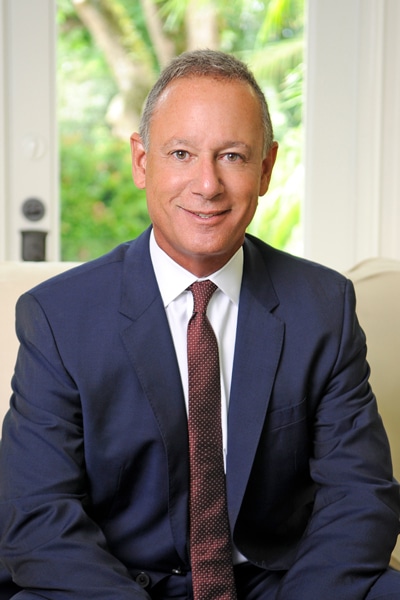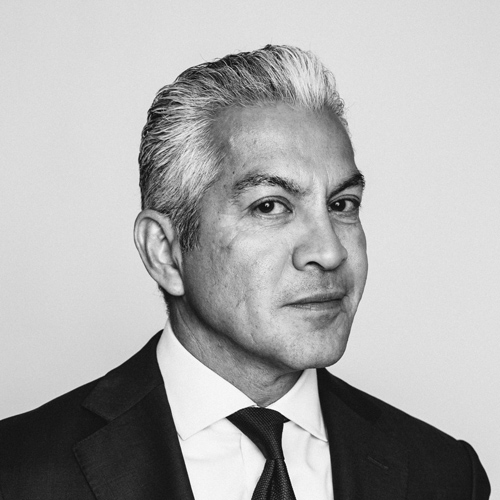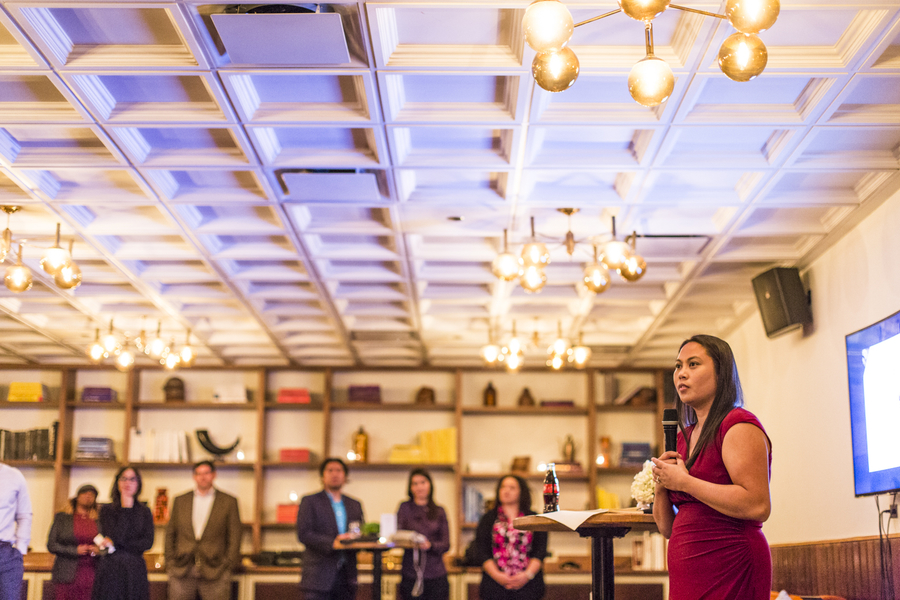
“My early life was humble,” Carlos Sabater says. “I learned from the very beginning to rely on other people.” When Sabater was three years old, he emigrated with his grandmother from Cuba to the United States after Fidel Castro’s rise to power. They left behind his parents and other family members, unsure at the time if they would see them again. His grandmother found a place for them to live in a backroom shack of a house in Miami, while they waited for family to arrive.
Sabater credits his grandmother as his very first mentor. She taught him to believe that he could accomplish whatever he set out to, no matter what. “With her help,” he says, “I quickly figured out the importance of learning the language and the customs—just beginning to meld in as a very young boy.”
The lessons he learned from his family, along with the guidance of mentors throughout college and his career, helped him grow into who he is today—not only Deloitte’s regional managing director of the Americas, which represents nearly 100,000 professionals across twenty-eight countries and territories, but also a mentor to many.
Without his mentorship experiences, Sabater does not believe he would have had the success he has achieved. This has compelled him to embed mentoring and relationship building into his leadership style, and working at Deloitte allows him to make his passion of mentoring foundational to his career. “Deloitte’s purpose is to make an impact that matters,” says Sabater, who has been with Deloitte for more than thirty years. “We don’t just tell you how to make an impact that matters—that’s up to the individual. One of the ways I make an impact is through mentoring. Deloitte’s purpose means the world to me because I am free to roam and free to do things that further my own goals, but at the same time, it furthers the mission and the aspiration of Deloitte.”
Sabater began to realize the importance of mentoring and guiding others after a serious boating accident when he was nineteen years old. He was in the hospital for a little more than a year, and he learned right away how to make the most of the awful situation. “It caused me to focus on my education, and it led me to be a lot more serious about my career,” he says. “I just think, in general, challenges have always been that. They exist as an opportunity to buckle down and get serious about the future.”
During his recovery, there were many people who came to visit him and share their own personal stories of struggle and challenges. He began to see that he was not alone and that his survival depended on other people. “I realized the importance of being helped and helping people,” Sabater says.
Sabater sought out mentors at college with a renewed sense of purpose and a new, serious outlook on the future. There was a student who was a couple of years ahead of him, came from a similar background, was also studying accounting and finance at Florida International University, and was succeeding. He had what Sabater wanted, so Sabater asked him to be his mentor and eventually followed him into the profession.
“To me, a mentor is someone that is ahead of you in the book of life,” he says. “Sometimes they are pages ahead of you, and sometimes they are on a different chapter. But if someone was a year ahead of me, I looked up to them. I wanted to know how they survived that year, how they made it.”
At the same time, Sabater himself naturally became a mentor through the Accounting Lab, a program that he founded and led during his junior and senior years of college. As he helped students with their accounting problems and questions, he created numerous mentoring relationships. Many of those students later became friends, clients, and colleagues. “Those kinds of relationships were the earliest point where I began to see the power of mentorship, the power of passing on what I did,” he says.
“To me, a mentor is someone that is ahead of you in the book of life. Sometimes they are pages ahead of you, and sometimes they are on a different chapter. But if someone was a year ahead of me, I looked up to them. I wanted to know how they survived that year, how they made it.”
– Carlos Sabater
He carried these college mentorship experiences with him to Deloitte, where it was clear to him that his success was going to come from people that were ahead of him—whether it was one week or several years. One of his first mentors at Deloitte was a woman who sought him out during the early stages of his career. “One of the things she taught me was that I had to have great care for others and that I had to take on other people as my mentees along the way,” says Sabater, who is still her mentee. “She instilled in me a responsibility to create the best leaders for the future. That made a mark on me throughout my career.”
All these experiences led him to choose mentoring as his way to make an impact at Deloitte. Sabater speaks to groups of people at the organization and asks them, “How many here don’t have a mentor and would like one? How many don’t mentor other people but would like to?” Many hands always go up when he asks these questions.
“What struck me was that this is not about a formal program,” Sabater says. “Mentoring is not something that you put on a goal sheet or just deal with in a really programmatic way. Mentoring is one of the most basic of human relationships. Humans, in general, want to take others that have less experience and guide them by the hand.”
Sabater has many mentees under his wing—at Deloitte and outside of the organization. How many? He doesn’t know, and he doesn’t want to know. “I cannot see it in me—if you came up to me and said, ‘could you mentor me?’—for me to say, ‘no,’” he says. “I don’t know how to do that because I remember when I asked people to mentor me along the way, the biggest fear that I had was that they were going to reject me. I just will not do that.”
Some of his mentee relationships are more formal. Some require more frequent meetings. Some are his friends’ children who are currently in school or have recently graduated. Making the time to help everyone who asks is not an issue for Sabater. It’s similar to asking how you make time for friends. “I think the answer is that I make time for my friends because I enjoy it so much,” Sabater says. “That’s just the truth of it. I enjoy this. I think there’s certainly enough time in the day and there’s a way to delegate responsibilities, but I will make time for those that I mentor. No questions asked.”
Mentoring is not always a time-consuming process, Sabater says. Sometimes all it takes is a word of encouragement. It is being able to care, to be open-minded, to listen, and to provide a guiding word or two.
Sabater follows some guiding principles, a few of which relate to mentoring. The first is what you can’t do alone, we can do together. Sabater never encourages the loner and instead encourages a team approach. The second is confiding in someone. Whether you seek confidence in a mentor, whether it’s about successes or problems, they provide a perspective that sometimes puts your situation in context and puts you at ease to allow you to keep moving forward.
Another principle is that passing on to others makes a difference for you because you can only keep what you have by giving it away. “I really believe that success only comes when you actually turn over to someone else what you’ve gained,” Sabater says. “You have to leave behind all of your successes, and that’s the only way you can enjoy them.”
Mentorships can be relevant to everyone, Sabater says. His daughters are college graduates, and his advice to them and anyone seeking to advance their career is this: “Wherever you go to work, make sure you latch onto someone that has what you want. Whether it is career related or some form of their success or they are making the kind of impact that you want, latch on to them and convince them to take you under their wing until you’re ready to fly.”
 Thoughts from Guest Editor Javier Palomarez
Thoughts from Guest Editor Javier Palomarez
“Carlos and his journey are a testament to two key principles that are critical to the future of our community and to American competitiveness in general. The importance of seeking out mentors throughout one’s career cannot be overstated. By the same token, Carlos proves he is a true leader by his dedication to serving as a mentor to others. As a successful executive, he opens the door for the generation that follows.”

